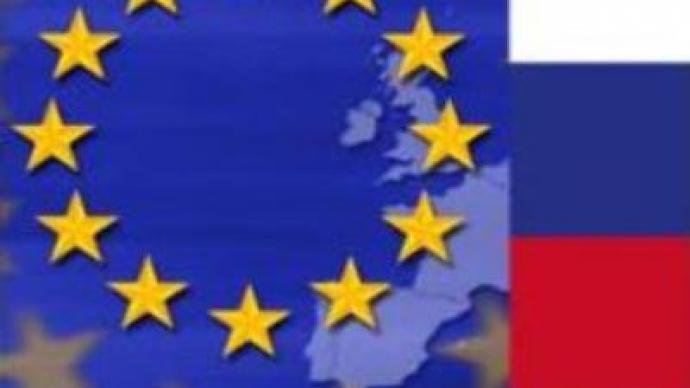Russia & EU get ready for summit

A new partnership agreement is set to dominate this week's Russia-EU summit in Samara. The Russian Foreign Ministry says it wants to reach a new understanding with the EU at the two-day event which starts on Thursday.
Germany – which holds the Presidency of the European Union – is pushing for the new deal, expected to put Moscow-Brussels relations on a new footing. Germany's Foreign Minister, Frank-Walter Steinmeier, who is currently in Russia's capital, is trying to settle some of the disputes between Brussels and Moscow.Frank-Walter Steinmeier met with Russian President Vladimir Putin in Moscow to try and ensure they can achieve something during the talks. Among others, it is the Russian-Polish row over meat exports that threatens to derail negotiations.Each of the sides assured the other of their support and willingness to continue dialogue.“This year Germany has both the EU and the G8 presidency, which is a double responsibility. And Russia is eager to help Germany by all means, especially on the eve of the Russia-EU and G8 summits,” stressed Mr Putin.“Both Russia and Germany want to overcome the disagreements that exist between our countries and not let them become political conflicts. This is the reason I am here. Together we’ll find a way out on the eve of the forthcoming summit,” Frank-Walter Steinmeier responded.Meanwhile there exist a number of unsettled disputes between Russia and some Western European countries, which do not allow to make the agreement a reality in any foreseeable future.Thus, Warsaw has been blocking the talks over Russia’s ban on Polish meat deliveries.Vilnius and Tallinn may also join the veto game. Lithuania wants Russia to resume oil supplies from the Druzhba pipeline, interrupted last year – due to a technical problem, claims Moscow. Lithuania insists the cut-off was a political decision.Estonia, for its part, is unhappy about the ugly row over the removal of the monument to the Soviet Soldiers in Tallinn.With all this in mind, the partnership agreement talks look doomed – and the EU officials say the issue is not going to be on the table in Samara.The list of disagreements, though, is not limited to the disputes with Poland, Lithuania and Estonia. Another sticking point is the Kosovo problem.“We discussed the Kosovo issue and once again Russia confirmed its position. It differs from that of our foreign colleagues but it is being accepted by them. President Putin stressed we will continue the dialogue to find a solution that will satisfy all sides,” expanded Russia’s Foreign Minister Sergey Lavrov.To add, Brussels is anxious about the energy issue. In this respect, President Putin’s successful Central Asia tour appears as a bitter pill for the EU, trying to wean itself off its energy dependence on Russia.It remains to be seen how successful the consultations in Samara will be. Frank-Walter Steinmeier, meanwhile, was cautiously optimistic after his talks with Vladimir Putin, – carefully avoiding any mentioning of the meat dispute or the partnership agreement.“We have certain disagreements with Russia. But now we see the situation more clearly, ahead of the summit. And we are on the right track,” German Foreign Minister said.Meantime, Russian Presidential aide Sergey Yastrzhembsky says the ties between Moscow and Brussels are expanding.“Both the Russian and European media have been saying that Russia-EU relations have reached crisis point. I think it is more than an exaggeration. I think, on the whole, Russian-EU relations are developing well. We have resolved several issues that have been presented as sticking points in our relations,” he said.“The potential in our relations with the European Union is very big. And it is a trump card, especially when problems arise in our relations. Another trump card is an objective interest, inclination and even fate, if you like, for Russia and the EU, being two large global players and neighbours, to co-operate. The third obvious trump card is the mutual interest, or political will of the sides to continue strategic co-operation and overcome existing problems. We know them well. I strongly believe that some problems are normal for relations between global players,” Mr Yastrzhembsky also noted.
You can share this story on social media:












